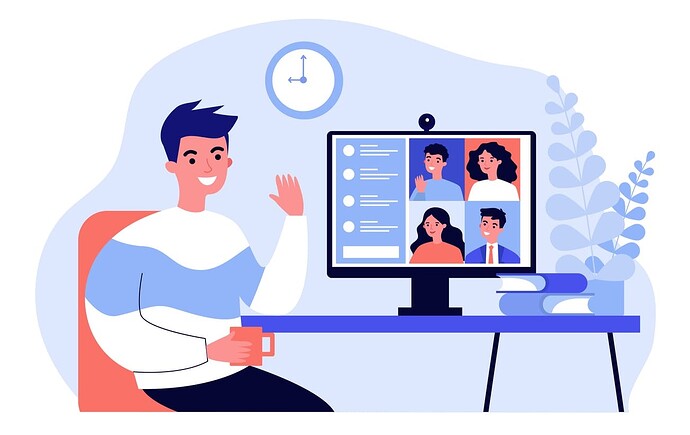Sociocracy and cooperation technology are two interconnected concepts that can enhance collaboration and decision-making within organizations.
Let’s explore how they relate to each other:
- Sociocracy:
Sociocracy, also known as dynamic governance, is a governance model that seeks to create inclusive and effective decision-making processes within organizations. It aims to distribute power and authority more equitably, encourage active participation, and foster consent-based decision-making.
Sociocracy promotes self-organization, transparency, and accountability to ensure the organization’s goals are achieved while respecting the needs and voices of all members.
- Cooperation Technology:
Cooperation technology refers to the tools and platforms that support and facilitate collaboration, communication, and decision-making within groups or organizations. These technologies can range from simple tools like shared calendars and project management software to more complex platforms that enable online deliberation, decision-making, and collective intelligence. Cooperation technology aims to streamline and enhance collaboration processes, improve transparency, and facilitate inclusive participation.
The relationship between sociocracy and cooperation technology is synergistic. Cooperation technology can provide practical solutions to support the implementation of sociocratic principles within organizations. Here are some examples:
a. Decision-Making Platforms:
Online platforms designed for consent-based decision-making, such as sociocratic consent apps, can help organizations implement sociocratic principles more effectively. These platforms provide a structured process for proposing, discussing, and reaching consent on decisions, ensuring that everyone’s input is considered and documented.
b. Collaborative Communication Tools:
Communication platforms like online forums, project management tools, and instant messaging applications facilitate transparent and inclusive communication within sociocratic organizations. These tools enable members to exchange information, collaborate on projects, and share updates, promoting transparency and accountability.
c. Feedback and Evaluation Tools:
Cooperation technology can offer tools for collecting feedback and evaluating the effectiveness of sociocratic practices. Surveys, feedback forms, and performance tracking systems can help organizations gather empirical data and assess the impact of sociocracy on various aspects, such as employee satisfaction, decision quality, and organizational performance.
d. Online Deliberation and Consent-Building Platforms:
In cases where organizations have geographically dispersed members, cooperation technology can provide online platforms for deliberation and consent-building. These platforms allow members to engage in discussions, share perspectives, and collectively develop solutions, overcoming geographical barriers and fostering a sense of participation and inclusivity.
By leveraging cooperation technology, organizations can enhance the implementation of sociocratic principles, improve collaboration, and create more efficient and inclusive decision-making processes.
However, it’s important to remember that technology should be employed thoughtfully and aligned with the organization’s specific needs and culture to ensure its effectiveness and avoid potential pitfalls.
If you would like to share your comments or personal reflections on this topic, please feel free to do so in a comment below. Thank you.
Best wishes.
